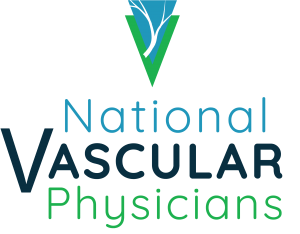
How to Live with Liver Cancer: A Guide for Those Dealing with the Illness
February 8, 2022
The Liver and Liver Cancer
Put simply, liver cancer is a type of cancer that begins in the liver and can grow from there to spread throughout the body – and the liver happens to be a vital organ that helps keep your body healthy. It’s responsible for producing bile, which helps break down fats and absorb fat-soluble vitamins from food. In addition to those two important functions, the liver also regulates blood sugar levels by sending glucose into the bloodstream as needed.
If you have liver cancer, you may be feeling an overwhelming sense of fear and confusion. The good news is that there are many ways to help manage your symptoms and live a fulfilling life with cancer. Here are some tips for living with liver cancer.
Managing Symptoms
If you have liver cancer, there are a few symptoms you should be aware of.
- Jaundice: Jaundice is a condition where the skin and whites of the eyes turn yellow from too much bilirubin. This can happen because your liver isn’t functioning properly.
- Itchy skin: If you’re feeling itchy all over, or just in one particular area, it might be due to liver cancer. Some people with this illness have patches of raised skin that itch excessively.
- Fatigue: If you have liver cancer, you may feel exhausted all the time. You may also experience sleep apnea and restless legs syndrome..
- Loss of appetite: One symptom of liver cancer is loss of appetite, which can lead to malnutrition and weight loss if not addressed.
Staying Active
It’s not always easy to stay active when you have liver cancer. But it’s important to do so. As your symptoms progress, you may find it harder and harder to do everyday activities like play with your kids or go for a walk in the park. It may feel like there is no end in sight or that you can’t move forward. However, it’s important to keep moving forward and live your life well. There are many ways to stay active even if you have liver cancer.
One way to stay active is by strengthening your upper body muscles. You can do this by doing arm exercises with weights or using resistance bands tied around a stable object (like a chair). This will help build strength and provide motivation while managing symptoms at the same time. Another great way to stay active is through exercise classes that focus on stretching and flexibility movements rather than high-impact cardiovascular exercises. These types of classes allow for a slower progression while being more gentle on the body during early stages of treatment–which means they’re ideal for those who have been diagnosed with liver cancer.
Lifestyle Changes
A few lifestyle changes can make a difference.
- Eat well: The liver needs the healthy nutrients found in healthy foods like leafy green vegetables, fresh fruits, lean protein, whole grains, and legumes to function properly.
- Stay hydrated: Drinking enough water is important for good health. It helps flush toxins out of your system and ensures that your cells are functioning well.
- Manage stress: Stress can affect your immune system and cause additional complications for people with cancer. A few ways to reduce the amount of stress in your life may be by keeping a journal or practicing yoga or meditation.
Support Groups
One of the most important things you can do for yourself is to seek support from others who have been through a similar experience. You can find support groups in your area, or online. One helpful resource is the American Cancer Society’s “Supportive Care Program.” It offers many different resources for people with cancer, including local and national resources like counseling, legal help, financial assistance, and more.
NVP is Here to Help
Liver cancer can be a scary diagnosis, but living with liver cancer doesn’t mean you need to stop living your life. Research the symptoms and treatments for liver cancer at https://nationalvascularphysicians.com/areas-of-care/liver-cancer-care/, and strive to make lifestyle changes to stay active, and reach out to others for support.
Speaking of reaching out, connect with the specialists right here at National Vascular Physicians by making an appointment to come in at https://nationalvascularphysicians.com/appointments/ or contacting us at https://nationalvascularphysicians.com/contact/.



